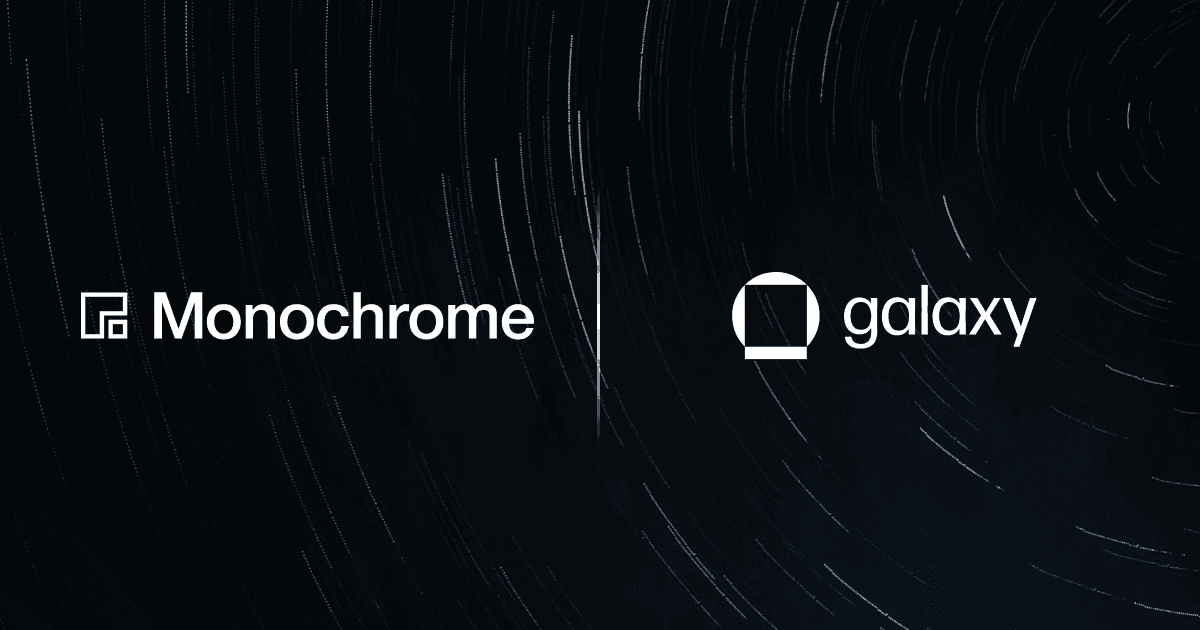Share
Australia’s First Spot Bitcoin ETF Lodged With The ASX Under New Rules
Monochrome Asset Management (Monochrome) announced its Responsible Entity partner, Vasco Trustees Ltd (Vasco) has submitted an updated application for the quotation of the Monochrome Bitcoin ETF (IBTC) on the Australian Securities Exchange (ASX). This fund will offer bitcoin exposure to both retail and wholesale investors, in a familiar, regulated structure.
ETFs have become increasingly popular in Australia, due to the simple and cost effective approach to investing at the retail level. Despite being 1% of the global ETF market, Australian ETFs are growing at a rate faster than more mature markets such as Europe and North America. During volatile market conditions, the Australian ETF market has not seen a net outflow since 2016, underscoring the strong appetite Australian investors have for ETFs.
Additionally, thematic ETFs and those holding alternative investments may be used by investors for portfolio diversification purposes or to access investment trends. Accordingly, an Australian spot bitcoin ETF such as the Monochrome Bitcoin ETF (IBTC), providing a regulated exposure to bitcoin, will give investors the ability to further diversify the asset allocation within their portfolios.
Argentina welcomes its first Bitcoin Futures Contract
The first Bitcoin futures contract in Latin America has begun trading on Matba Rofex, three months after Argentina’s regulator, the Comisión Nacional de Valores, approved a Bitcoin-based futures index. The approval of this is part of a strategic innovation agenda, to stimulate public-private collaboration for financial products.
The futures contract allows investors to speculate on the future price of bitcoin, or hedge positions, where buyers and sellers are obligated to purchase and sell bitcoin at a specified date. All trades are to be settled with Argentinian pesos (ARS) through bank transfers. This product will only be available for wholesale investors, with an unclear timeline for retail access.
Bitcoin has become a focal point for many residents, where Argentina’s annual inflation rate is currently 114%, which is the highest level since 1991. To combat hyperinflation eroding the purchasing power of residents, bitcoin has provided an opportunity for people to transact with a fixed supply currency. Consequently, bitcoin has reached an all time high relative to the ARS, where the ARS-USD has fallen by 99% since 2018.
The pandemic exacerbated the poor economic conditions for Argentinians, where the government chose quantitative tightening measures to stimulate a worsening economy. Bitcoin may provide a life raft for people who reside in countries subject to high inflation, as it provides a fixed currency supply that is pre-programmed and not subject to inflationary policies of centralised governments.
Downgrade of U.S. debt
One of the big three credit rating agencies, Fitch Group (Fitch), downgraded its rating on U.S. debt from the highest rating, AAA, to AA+. AAA is the highest possible rating and indicates that the bond issuer, in this case the U.S. government, had the strongest capacity to meet financial commitments. While AA+ debt is still high quality and investment grade, it is riskier than AAA debt. This mirrors the downgrade of U.S. debt by S&P in 2011, which also stated political dysfunction to be a contributing factor. In a press release, Fitch stated,
“The repeated debt-limit political standoffs and last-minute resolutions have eroded confidence in fiscal management,”
This reinforces the nature of the downgrade to be due to the political environment rather than issues on Wall Street. While many saw this credit downgrade as a surprise, with the Nasdaq falling by 2.17%, bitcoin proponents saw an opportunity to highlight the role of bitcoin outside of traditional markets.
This downgrade is not significant enough to suggest the U.S. government will default, as the Fed can print more of its own currency, U.S. dollars, to meet its financial obligations; however, it is a reflection of the economic outlook in the U.S. While this ensures the government meets obligations, expanding monetary supply to do so also diminishes the value of the currency, which imposes pressure on U.S. citizens and foreign investors. Consequently, this uncertainty cycles to higher prices and poorer exchange rates. This is why many emerging countries will choose to raise debt in foreign currency, primarily U.S. denominated debt, as it ensures central banks cannot print money to meet obligations.
Whilst noting the downgrade’s relatively muted immediate impact on markets, it illustrates the fragility of the global financial system dependent on the U.S. dollar, which is also shown to be stressed. Accordingly, bitcoin may provide an alternative solution to the banking system, where the issuance and monetary policy of bitcoin cannot be corrupted or controlled by centralised governments or agencies.
Quantitatively, bitcoin’s correlation with market indices has reduced, whereby bitcoin’s correlation to the S&P500 and U.S. dollar is -0.70 and -0.82 (previously the correlation with the U.S. dollar was 0.03 earlier in July) respectively. Bitcoin’s hard money attributes, such as scarcity and censorship resistance, may have resulted in a “flight to safety”, seeing the BTC/USD price rise approximately 2%.
Bulgaria holds over 200,000 bitcoin
Governments and companies in Bulgaria own over 213,519 bitcoin, amounting to approximately 1% of the global circulating supply of bitcoin. This places Bulgaria as a major holder of bitcoin, after the nation seized bitcoin from a criminal group in 2017, as part of an investigation called “PRATKA/VIRUS”. At the time of writing, this is approximately USD$6.2bn, having increased from approximately US$500m at the time of seizure.
Consequently, Bulgaria now owns more than the reported 207,189 bitcoin the U.S Treasury owns, which has rapidly grown from the reported 69,640 bitcoin owned by the U.S in the year prior. Similarly to Bulgaria, the United States has grown its balance from raids, including the cases of the hacker James Zhong, the Bitfinex heist and seizures from the Silk Road marketplace.
If the United States had not sold bitcoin In March 2023 and July 2023 through Coinbase and special institutional auctions, it would be the leading nation by bitcoin balance.
The content, presentations and discussion topics covered in this material are intended for licensed financial advisers and institutional clients only and are not intended for use by retail clients. No representation, warranty or undertaking is given or made in relation to the accuracy or completeness of the information presented. Except for any liability which cannot be excluded, Monochrome, its directors, officers, employees and agents disclaim all liability for any error or inaccuracy in this material or any loss or damage suffered by any person as a consequence of relying upon it. Monochrome advises that the views expressed in this material are not necessarily those of Monochrome or of any organisation Monochrome is associated with. Monochrome does not purport to provide legal or other expert advice in this material and if any such advice is required, you should obtain the services of a suitably qualified professional.
Monochrome Asset Management
Related Articles

Monochrome Partners with Galaxy Digital for Total Bitcoin Wealth Management
Monochrome Capital, a related entity of the investment manager of the Monochrome Bitcoin ETF (IBTC), today announced a strategic partnership with Galaxy Digital to deliver comprehensive Bitcoin wealth management solutions for institutional clients.

IBTC Integrated into Bitcoin-Backed Mortgages for Qualifying High-Net-Worth Investors
The Monochrome Bitcoin ETF (IBTC) has been incorporated into a Top 4 Australian bank’s residential mortgage lending framework. IBTC is now recognised alongside traditional assets such as unencumbered property and income streams when assessing high-net-worth (HNW) investors for home loans. This development connects regulated Bitcoin ETFs with private banking services, enabling Bitcoin holders to access property financing without liquidating their exposure.